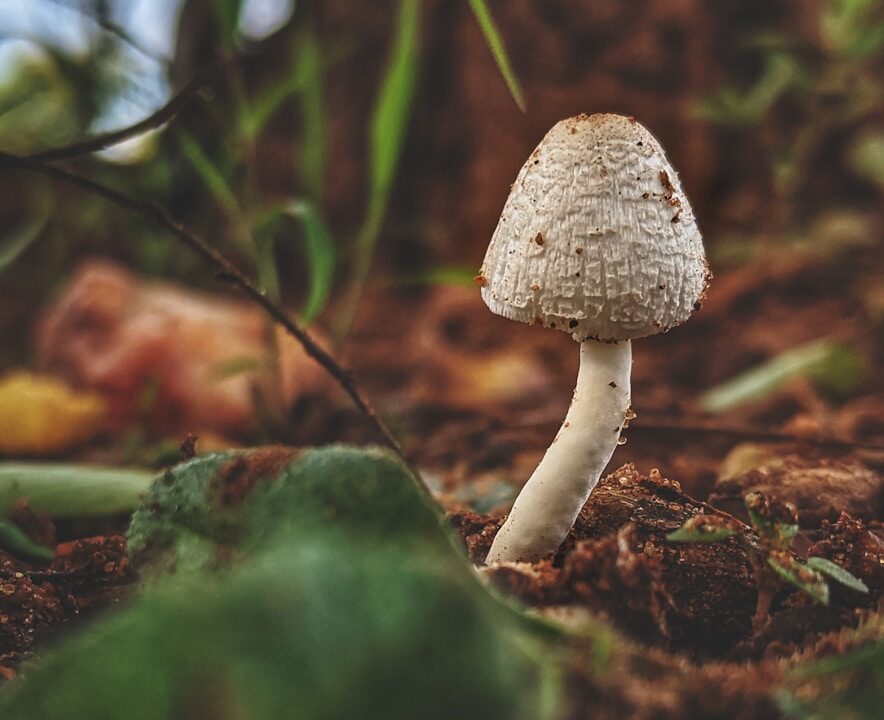
Introduction to Psychedelics and Human Potential
Psychedelics, often referred to as hallucinogens, are a class of substances known for their profound effects on perception, mood, and cognition. Scientifically, psychedelics include compounds such as psilocybin (found in certain mushrooms), LSD (lysergic acid diethylamide), and DMT (dimethyltryptamine). These substances have been used for centuries in various cultural and spiritual contexts to induce altered states of consciousness, often for healing or ritualistic purposes.
Human potential encompasses the vast array of cognitive and emotional capabilities that each individual possesses. This includes creativity, problem-solving skills, emotional resilience, empathy, and the ability to form deep, meaningful connections. Historically, the expansion of human potential has been linked to various practices such as meditation, education, and psychotherapy. Recently, there has been a growing interest in the potential of psychedelics to facilitate significant cognitive and emotional growth.
Emerging research suggests that psychedelics may unlock human potential by enhancing neural plasticity, the brain’s ability to reorganize itself by forming new neural connections. This can lead to increased creativity, improved emotional regulation, and a greater sense of interconnectedness. Studies have shown that psychedelics can help individuals process traumatic experiences, reduce symptoms of depression and anxiety, and foster a sense of spiritual well-being.
The renewed scientific interest in psychedelics is driven by promising results from clinical trials and anecdotal reports. Researchers are exploring how these substances can be used responsibly and safely to enhance mental health and well-being. This growing body of evidence suggests that psychedelics could play a significant role in unlocking human potential, offering new avenues for personal growth and development.
Historical Context: Psychedelics in Ancient Cultures
The historical use of psychedelics spans across numerous ancient cultures, each integrating these substances into their spiritual and communal practices. For millennia, psychedelics have played a pivotal role in various societies, providing not only a means of personal transformation but also fostering collective growth.
In South America, the use of ayahuasca, a potent brew made from the Banisteriopsis caapi vine and other ingredients, has been a cornerstone of shamanic traditions. Indigenous tribes, particularly in the Amazon basin, have used ayahuasca in ceremonial rituals to heal physical ailments, connect with spiritual realms, and gain insight into the nature of reality. The shaman, or curandero, guides participants through these profound experiences, often facilitating a journey of self-discovery and spiritual awakening.
Meanwhile, in ancient Greece, the Eleusinian Mysteries were highly secretive rites celebrated in honor of Demeter and Persephone. These ceremonies, held annually in the city of Eleusis, are believed to have involved the consumption of a kykeon, a psychoactive beverage. Participants in the Eleusinian Mysteries reported profound mystical experiences, which they attributed to the divine presence of the goddesses. The rites fostered a sense of unity and provided initiates with insights into life, death, and rebirth, leaving a lasting impact on Greek culture and philosophy.
Similarly, indigenous tribes around the world have utilized psilocybin mushrooms for centuries. In Mesoamerica, the Aztecs referred to these fungi as “teonanácatl,” or “flesh of the gods,” and used them in religious and divinatory ceremonies. The ingestion of psilocybin mushrooms facilitated communication with deities and ancestors, offering guidance and wisdom. These practices were integral to the social and spiritual fabric of these communities, underscoring the profound role psychedelics played in their cultural and religious life.
Across these diverse contexts, the integration of psychedelics into ancient rituals highlights their significant contributions to personal and collective growth. By exploring these historical practices, we gain valuable insights into the potential benefits of psychedelics and their enduring impact on human evolution.
The Science of Psychedelics: How They Work
Psychedelics such as psilocybin, LSD, and DMT have garnered significant interest within the scientific community due to their profound effects on the human brain. These substances primarily interact with serotonin receptors, particularly the 5-HT2A receptor, which plays a crucial role in mood, perception, and cognition. When psychedelics bind to these receptors, they induce a cascade of neural activities, leading to altered states of consciousness and perception.
Research has shown that psychedelics can enhance neuroplasticity, the brain’s ability to reorganize itself by forming new neural connections. This property is particularly important for learning, memory, and recovery from brain injuries. For instance, a study published in the journal “Cell Reports” highlighted that psychedelics promote the growth of dendritic spines, which are small protrusions on neurons that facilitate synaptic connections. This increased connectivity may underlie the long-lasting cognitive and emotional benefits reported by users of psychedelics.
Moreover, psychedelics appear to disrupt the default mode network (DMN), a network of brain regions that is active during introspective thought and self-referential processing. The DMN is often associated with the ego, and its temporary deactivation during a psychedelic experience can lead to a sense of ego dissolution, or the feeling of being one with the universe. This phenomenon has been linked to therapeutic outcomes, such as reduced symptoms of depression and anxiety.
Key scientific studies have further elucidated the mechanisms by which psychedelics exert their effects. For example, a landmark study by Carhart-Harris and colleagues at Imperial College London used functional magnetic resonance imaging (fMRI) to demonstrate that psilocybin reduces activity in the DMN, leading to a more interconnected brain state. Another study published in “Nature” revealed that LSD increases global brain connectivity, which may explain the enhanced creativity and problem-solving abilities observed during psychedelic experiences.
In summary, the science of psychedelics is a rapidly evolving field that continues to uncover the intricate ways these substances interact with the brain. By modulating serotonin receptors and enhancing neuroplasticity, psychedelics hold the potential to unlock new avenues for understanding and optimizing human cognition and mental health.
Psychedelics and Cognitive Evolution
The hypothesis that psychedelics have played a significant role in human cognitive evolution is a topic of growing interest. One prominent theory is the ‘Stoned Ape’ hypothesis, proposed by ethnobotanist Terence McKenna. This hypothesis suggests that the consumption of psychedelics, particularly psilocybin mushrooms, by early hominids could have been a catalyst for pivotal advancements in language, creativity, and problem-solving abilities.
According to McKenna, the incorporation of psychedelics into the diet of early humans may have had profound neurophysiological effects. Psilocybin, the active compound in certain mushrooms, is known to enhance synaptic plasticity, which is crucial for learning and memory. This enhancement could have facilitated the development of more complex neural networks, thereby boosting cognitive functions such as abstract thinking, pattern recognition, and linguistic capabilities.
Supporters of the ‘Stoned Ape’ hypothesis argue that psychedelics could have played a crucial role in social bonding and the formation of cohesive communities. The altered states of consciousness induced by these substances may have led to shared mystical or religious experiences, fostering a sense of unity and cooperation. Such social cohesion would have been advantageous for survival, potentially accelerating the pace of cultural and cognitive evolution.
However, the ‘Stoned Ape’ hypothesis is not without its critics. Skeptics point out that there is limited direct archaeological or anthropological evidence to substantiate the claim that psychedelics were a significant factor in human evolution. Furthermore, some argue that the cognitive advancements attributed to psychedelics could have been achieved through other means, such as natural selection favoring more intelligent individuals or the development of complex tools and communication systems.
Despite the controversy, the idea that psychedelics may have influenced human cognitive evolution remains a compelling area of research. Advances in neuroscientific techniques and a growing body of ethnographic studies continue to shed light on the potential impacts of these substances on the human brain and society. While definitive conclusions are yet to be drawn, the intersection of psychedelics and cognitive evolution offers a fascinating glimpse into the possible pathways that have shaped human intelligence and creativity.
Emotional and Psychological Benefits of Psychedelics
Psychedelics have long been associated with profound emotional and psychological benefits. Emerging research and a plethora of anecdotal evidence suggest that psychedelics can significantly enhance empathy, reduce anxiety and depression, and foster greater self-awareness. These benefits are not merely speculative; they are increasingly being substantiated by rigorous scientific studies and clinical trials.
One of the most compelling benefits of psychedelics is their ability to increase empathy. Users often report a heightened sense of connection with others and the world around them. This increased empathy can lead to improved interpersonal relationships and a deeper understanding of oneself and others. Clinically, studies have shown that substances like psilocybin can induce lasting changes in emotional processing, helping individuals to become more compassionate and understanding.
In terms of mental health, psychedelics have shown promise in reducing symptoms of anxiety and depression. Several clinical trials have demonstrated that psychedelics like LSD, psilocybin, and MDMA can produce significant and sustained reductions in these conditions. For instance, a study published in the Journal of Psychopharmacology found that a single dose of psilocybin resulted in substantial reductions in depression and anxiety in patients with life-threatening cancer diagnoses. Such findings highlight the potential of psychedelics as powerful tools in mental health treatment.
Enhanced self-awareness is another notable benefit. Many individuals who have used psychedelics report profound insights into their own thoughts, behaviors, and life circumstances. This heightened self-awareness can lead to personal growth and positive behavioral changes. Research indicates that psychedelics may facilitate what psychologists call “ego dissolution,” a state where the boundaries between self and others blur, allowing for a deeper understanding of one’s place in the universe.
The ongoing research into psychedelics is promising, with numerous clinical trials currently exploring their therapeutic potential. Institutions such as Johns Hopkins University and Imperial College London are conducting extensive studies to better understand how psychedelics can be used to treat various mental health conditions. As this field continues to evolve, the potential for psychedelics to unlock human potential becomes increasingly evident.
Psychedelics in Modern Therapy and Personal Growth
Psychedelics have undergone significant resurgence in contemporary medicine, particularly in the domain of mental health therapy. Psychedelic-assisted psychotherapy has emerged as a promising treatment for a variety of psychological conditions, including depression, anxiety, PTSD, and substance abuse disorders. These therapies typically involve carefully managed sessions wherein patients consume controlled doses of psychedelics, such as psilocybin, MDMA, or LSD, under the supervision of trained professionals.
During psychedelic-assisted therapy sessions, the altered states of consciousness induced by these substances are leveraged to facilitate profound emotional and psychological breakthroughs. Patients often report experiencing heightened introspection, emotional release, and a deeper connection to their subconscious mind. These sessions are meticulously structured to ensure safety and efficacy, often including pre-session preparation and post-session integration to help patients process their experiences constructively.
The success rates of psychedelic-assisted psychotherapy are noteworthy. Clinical trials have shown that a significant percentage of participants report substantial reductions in symptoms of depression and anxiety, sometimes after just a few sessions. For instance, a study conducted by Johns Hopkins University revealed that 80% of participants experienced notable decreases in depressive symptoms after a single psilocybin session. Similarly, MDMA-assisted therapy has demonstrated impressive results in treating PTSD, with more than two-thirds of patients no longer meeting the criteria for PTSD after undergoing the treatment.
Beyond clinical settings, individuals have also reported profound personal growth experiences through the use of psychedelics in controlled and guided environments. These experiences often include heightened creativity, improved emotional well-being, and a sense of interconnectedness. Many users describe gaining new perspectives on life, resolving deep-seated traumas, and achieving a greater sense of purpose and fulfillment. Such personal growth narratives underscore the potential of psychedelics as tools for not only therapeutic healing but also for enhancing overall quality of life.
Ethical and Legal Considerations
The use of psychedelics in unlocking human potential is fraught with ethical and legal complexities that vary significantly across different regions. Currently, the legal status of psychedelics such as psilocybin, LSD, and MDMA ranges from outright prohibition to controlled medical use. For instance, while countries like Portugal and Canada have decriminalized certain psychedelics, the United States remains a patchwork of regulations with some states adopting more progressive stances than others.
From an ethical perspective, the use of psychedelics for personal and therapeutic purposes raises several questions. The potential benefits of these substances in treating mental health disorders, such as PTSD and depression, are increasingly recognized. However, this potential must be balanced against the risk of misuse and abuse. Ensuring that individuals have access to safe and informed use is paramount. This involves not only the provision of accurate information and medical supervision but also the establishment of frameworks that minimize the risk of harm.
Furthermore, the ethical implications extend to issues of consent and autonomy. Individuals should have the right to choose whether or not to use psychedelics, but this choice must be informed. The potential for these substances to alter consciousness means that the decision to use them carries significant weight. Therefore, robust education and guidelines are essential to empower users to make informed decisions.
In addition to personal use, the therapeutic application of psychedelics also necessitates careful ethical consideration. Therapists and researchers must navigate the fine line between offering innovative treatments and ensuring patient safety. The potential for breakthrough therapies is promising, yet it must be pursued with caution and responsibility.
As the legal landscape continues to evolve, the importance of developing comprehensive regulations that address both ethical and legal considerations cannot be overstated. These regulations should aim to maximize the benefits of psychedelics while minimizing the risks, thus unlocking their potential in a responsible and ethical manner.
Future Directions: Research and Societal Implications
The future of psychedelics in society and science appears promising, with ongoing and upcoming research initiatives poised to offer deeper insights into their potential benefits. Researchers are delving into the therapeutic applications of substances such as psilocybin, LSD, and MDMA, particularly in the treatment of mental health disorders. Preliminary studies indicate that psychedelics can offer significant relief for conditions like depression, anxiety, and PTSD, often where conventional treatments have failed. This burgeoning field of psychedelic therapy is attracting attention from both the scientific community and mainstream medical institutions.
Beyond mental health treatment, there is growing interest in the potential of psychedelics for cognitive enhancement. Studies suggest that these substances can foster neuroplasticity, the brain’s ability to reorganize itself by forming new neural connections. This could have far-reaching implications for learning, creativity, and problem-solving skills. As our understanding of the mechanisms behind these effects expands, the notion of using psychedelics to enhance cognitive functions may become a topic of serious academic inquiry and public discourse.
Societal attitudes towards psychedelics are also shifting. Once stigmatized and criminalized, these substances are gradually gaining acceptance as legitimate tools for personal growth and healing. This change is partly driven by the dissemination of scientific findings and the advocacy of high-profile figures in the fields of psychology, psychiatry, and even technology. As psychedelics become more mainstream, we could see a transformation in how society views consciousness and drug use, potentially leading to more nuanced and informed policies.
Ultimately, the potential for psychedelics to unlock further human potential is vast. As research continues to illuminate their benefits and mechanisms, these substances could play a critical role in not only treating mental health conditions but also in enhancing our cognitive capabilities and fostering a more open-minded and compassionate society. The journey is just beginning, and the possibilities are as profound as they are exciting.













